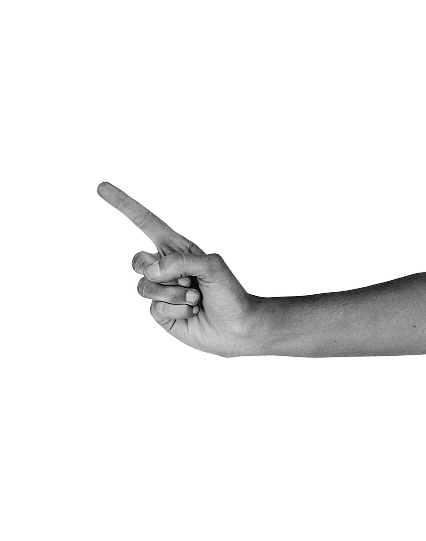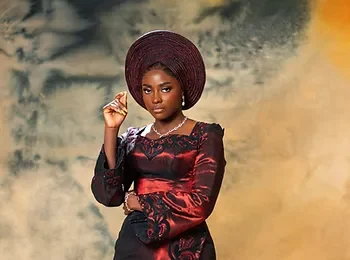
Based in Nigeria, Grace Omotara Àkanni-Lawrence, a dynamic content creator and founder of the thriving makeup brand Rhodes by Mo, stands at the forefront of cultural revival and empowerment. In a world where Western ideals often overshadow local cultures, Grace Omotara Àkanni-Lawrence, known as Tara, is redefining cultural authenticity. By creating content in Yoruba, her native language, Tara not only celebrates her heritage but also challenges the dominance of Western languages and influences. Her work, from humorous videos to a growing makeup brand, embodies a broader movement to reclaim and revitalize Indigenous languages, echoing the arguments of Ngũgĩ wa Thiong’o in Decolonising the Mind. Thiong’o contends that the elevation of European languages undermines African cultures, a notion Tara counters by proving that cultural and linguistic authenticity can drive change and empowerment. This interview explores Tara’s commitment to Yoruba and its significance in resisting cultural erosion and promoting identity.
Tara’s journey is a testament to her fearless spirit and unwavering dedication. Tara’s journey reflects her commitment to blending entertainment, education, and beauty while staying true to her Yoruba roots. By prioritising authenticity, she engages with cultural heritage and challenges societal norms, demonstrating that embracing and nurturing one’s heritage can be a meaningful way to influence change.
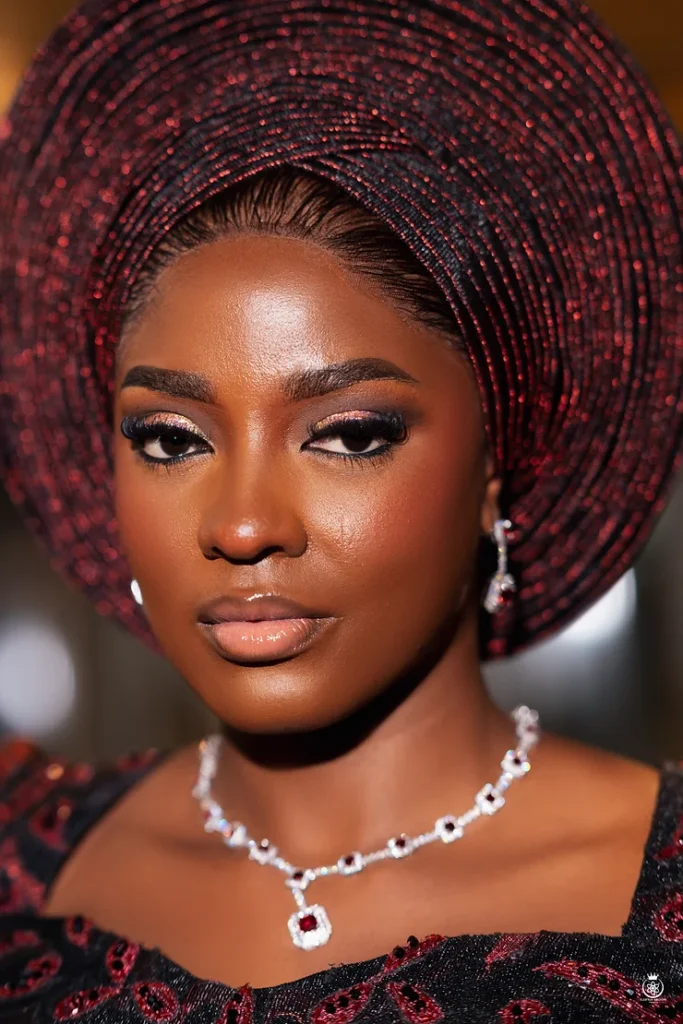
DECOLONIAL THOUGHTS: So to begin with, can you tell us a bit about yourself and your background? What inspired you to create content like the Yoruba bistro?
TARA: Okay, my name is Àkanni Grace Omotara and I am from Oyo State in Ibadan. I grew up in Ibadan with my mum and younger brother. I studied microbiology at the Polytechnic of Ibadan and started creating content during my HND1 [Higer National Diploma] which wasn’t planned as a career. What I wanted to be then, was a broadcaster, working on the radio as a presenter, because I enjoy talking and it brings me joy when people listen to me.
I started as a radio presenter in Ibadan, interning with several stations and I was so happy because I was finally doing what I wanted. Growing up, my family insisted on studying lucrative courses- and according to them, that wasn’t art. They encouraged careers in medicine, pharmacy, or sciences. I figured I could do it so I joined science classes in secondary school, but one of my teachers often told me I was wasting my time in science because I could pick up a piece of paper with English writing, and just translate it and read it out like a newscaster.
I think one of my first videos was just me ranting in my local Ibadan dialect. I picked up my camera, recorded myself talking gibberish, and kept the videos on my phone with no intent of posting them online.
One of my friends saw it and suggested I post it because it was funny. I did, and the first video got some reception. I was fascinated because I couldn’t understand why people would laugh at me talking about basic things. I received about 10 comments saying I was funny, which surprised me. So, I decided to create more content.
DECOLONIAL THOUGHTS: It’s funny how people don’t realise they’re funny until they put something out there and others tell them. They’re just being themselves, but it turns out to be hilarious.
TARA: Even now, when I make videos, I don’t understand why people find them funny. Sometimes, I watch my videos and wonder what’s so amusing. I’ve received emails saying my videos bring people joy, which I find surprising but appreciate.
During my service year in Bayelsa, I couldn’t make videos because it was tough to mingle with people. But then, after my service, I also told myself that I was not going to go back home [ Oyo State]. So, after my service, I moved to Lagos, still creating content, but not making much money.
Towards the end of my service, someone introduced me to a Travel Agency in Lagos looking for a social media manager. I had followers on Twitter and Instagram, so I started working with them. After finishing my service, they offered me a job at their travel agency. I moved to Lagos, but the commute was too long, and I quit after a month to focus solely on content creation. That’s how I ventured into content creation.
DECOLONIAL THOUGHTS: That’s really interesting. What stands out is that it’s always been in you. Even if you didn’t know how funny you were or how much joy you’d bring, you always knew you wanted a speaking role in life. And I think what drew me to your content, apart from the fact that it’s really funny, was that it’s primarily in Yoruba.
TARA: Yes
DECOLONIAL THOUGHTS: It’s really interesting to see how indigenous languages are losing ground in Nigeria, even though they’re so important. Given that context, I’m curious about your choice to use Yoruba in your content and podcast. Do you think it brings extra joy to Yoruba speakers? And how does it affect your engagement with people who don’t speak Yoruba? With subtitles available, do you feel this choice impacts your reach in any way?
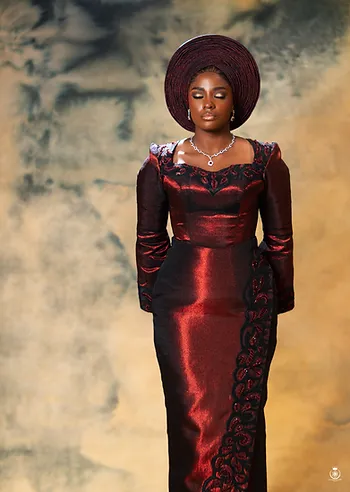
TARA: Actually, I remember when I first started, on Twitter, for example, people would see me or categorise me as razz [Nigerian slang: meaning uncool, uncultured, or unexposed]. They would call me razz, local and I forget the third thing.
At first, I felt pressured to focus on English content, but my love for languages kept me connected to Yoruba. I’m fascinated by all languages and always eager to learn even a few phrases. Yoruba is such a beautiful language and is so thorough that I think and pray in it first. It enriches my understanding of English and helps me communicate more clearly. So, when I use those words, it helps me understand myself better and then project well so that people that I’m talking to can understand me, that is if I am speaking to them in English.
I feel like in Nigeria, there’s often pressure to adjust our accents to be understood, especially when travelling. I’ve had discussions where people felt they had to change their way of speaking to fit in. For example, one person started adding an accent to be better understood, which I found quite ridiculous because it wasn’t authentic to who they were. If non-native speakers can learn to pronounce names like Hrithik Roshan or Arnold Schwarzenegger, why can’t we expect the same for names like Damilola or Omotara?
Despite how clearly we articulate- we use our entire mouths when we speak- some people still feel pressured to adopt foreign accents. I even paid to learn a British accent once because I was self-conscious about being seen as “local” for creating content in Yoruba- Someone once told me I couldn’t join a conversation, and that they would let me know when they were speaking in Yoruba. But I prefer expressing myself in Yoruba because it’s more natural for me, not because I can’t speak English.
Now, I’ve noticed that when I create content in English, people often engage less compared to when I use Yoruba. They seem to appreciate the authenticity and presentation in Yoruba more. I believe that trying to change to fit in doesn’t help and can even make things worse. You’ll still be seen as Black, so why not stay true to yourself? Embracing your identity can bring a sense of joy, even if others don’t fully accept you.
DECOLONIAL THOUGHTS: Exactly. Insisting on being addressed correctly and refusing to change who you are can earn respect. Staying true to yourself, even when pressured, is crucial. Your audience connects more deeply when you’re authentic, as you’ve experienced. On the business side, especially with your makeup brand in Nigeria, Rhodes by Mo, I’m curious about the challenges you have faced as an entrepreneur and the ease of doing business in Nigeria.
TARA: I started with skincare products in 2021 but found the market saturated and the process too hectic, so I stopped. I didn’t pursue any other business in 2021. In 2022, I switched to logistics, got a bike, and began offering delivery services but I wasn’t making enough to pay salaries. So, I decided to find a unique business opportunity, something not common in Nigeria. While scrolling through TikTok, I saw a gloss-making training ad. I reached out but found the training too lengthy, so I chose to focus on creating lip care products like glosses, lipsticks, and masks instead.
Once, my producer messed up a whole batch and it felt like that was the end because I had paid so much money; I had paid photographers, videographers and everything went down the drain but I told myself I was going to keep going.
My mom, a seasoned businesswoman, always reminds me that challenges are normal in business, even if things seem to be going well. She says that facing obstacles is part of the journey, whether you’re just starting or have been in business for years.
Although I don’t wear makeup and struggle with applying it, I had to learn at least to apply glosses to effectively promote my beauty brand. This challenge has been a growth experience. Currently, we focus on lip care but plan to expand into full makeup products like powders and eyeshadow palettes.
DECOLONIAL THOUGHTS: That leads me to my next question of how you feed your personality into Rhodes Beauty.
TARA: I’ve always wanted to stand out and do something different. I chose makeup, especially lip glosses, because there was less competition in Nigeria and it allowed me to create something I genuinely use and love. Many of our glosses are named after personal influences, like my mom, to show our unique brand identity. I want people to know that I am different- that’s also why I decided to focus on Yoruba content rather than English, even though it was uncommon and initially seen as less mainstream. Thankfully, the acceptance has grown, but when I started, there were very few Yoruba content creators.
DECOLONIAL THOUGHTS: What has kept you inspired and motivated or what are the tools that help you stay true to yourself when you know that to speak casually the world is moving mad- how do you stay sane and block the noise out?
TARA: When things get overwhelming, I remind myself that this is my business and I can’t close it down just because of negative feedback. My primary motivation is my responsibility to support my family and others who depend on me.
There are times when I see comments and they are just so mean but I know social media isn’t real life. And I’m not about to let a stranger have power over what gives me joy.
I find it hard to understand why some people project their own unhappiness onto others. I’ve faced deep sadness myself, even feeling like giving up, but I never used that to make others miserable. Just because someone is struggling doesn’t mean they should try to bring others down.
Even when I’m sad, I maintain a positive appearance in my videos because I know people rely on me for joy. I can’t let others’ negativity affect me. Everyone has their own path, and I choose to focus on spreading positivity rather than letting negativity impact my work.
DECOLONIAL THOUGHTS: I think misery loves company and you can’t let them win by letting you be miserable too so very well said. Going forward as a business owner what advice if any would you have for someone who’s also looking to start something in Nigeria or elsewhere and what advice would you give to anybody who feels that their culture is treated as inferior?
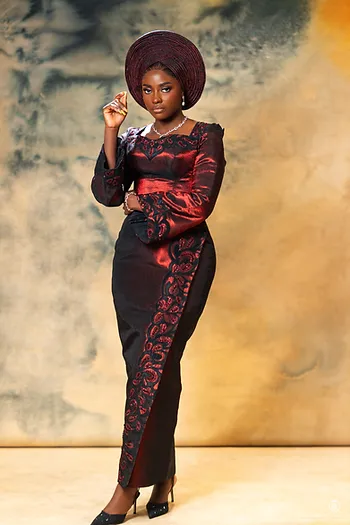
TARA: There’s a Yoruba saying, “Odò ti ó bá gbàgbé orisun gbi gbẹ ló ngbẹ,” which means “a river that forgets its source will eventually dry up”. Your culture is who you are and I feel like it’s even easier being yourself if you’re a content creator. You don’t need to try too hard; just be yourself and speak from your own experience.
If you’re starting a business, choose something you genuinely believe in and use yourself. Authenticity is key in convincing others about your product. Business isn’t easy, and it’s normal to face challenges. It’s okay to take breaks, but don’t jump from one venture to another too quickly. Give each idea time to grow and improve.
Keep learning and refining what you offer. Progress is noticeable and will help build trust with your audience. Ultimately, staying true to yourself and continuously improving your business will lead to success.
DECOLONIAL THOUGHTS: This conversation has been truly enlightening. The core of Decolonial Thoughts is to amplify marginalised voices—those from the Global South and non-mainstream backgrounds. The goal is to spark honest conversations about change, starting with ourselves.
Being true to your culture in a world that often questions it is an act of decolonisation. You don’t need grand gestures to make a difference. Sometimes, it’s as simple as speaking Yoruba proudly.
Your content has been a powerful inspiration for me. It has made me reflect on why I’m not more fluent in Yoruba and motivated me to take responsibility for learning it. I appreciate how your work encourages others, including myself, to embrace and celebrate our heritage.
Thank you so much for this interview and for the positive impact you’re making.
TARA: Thank you so much for reaching out to me.
Community.
